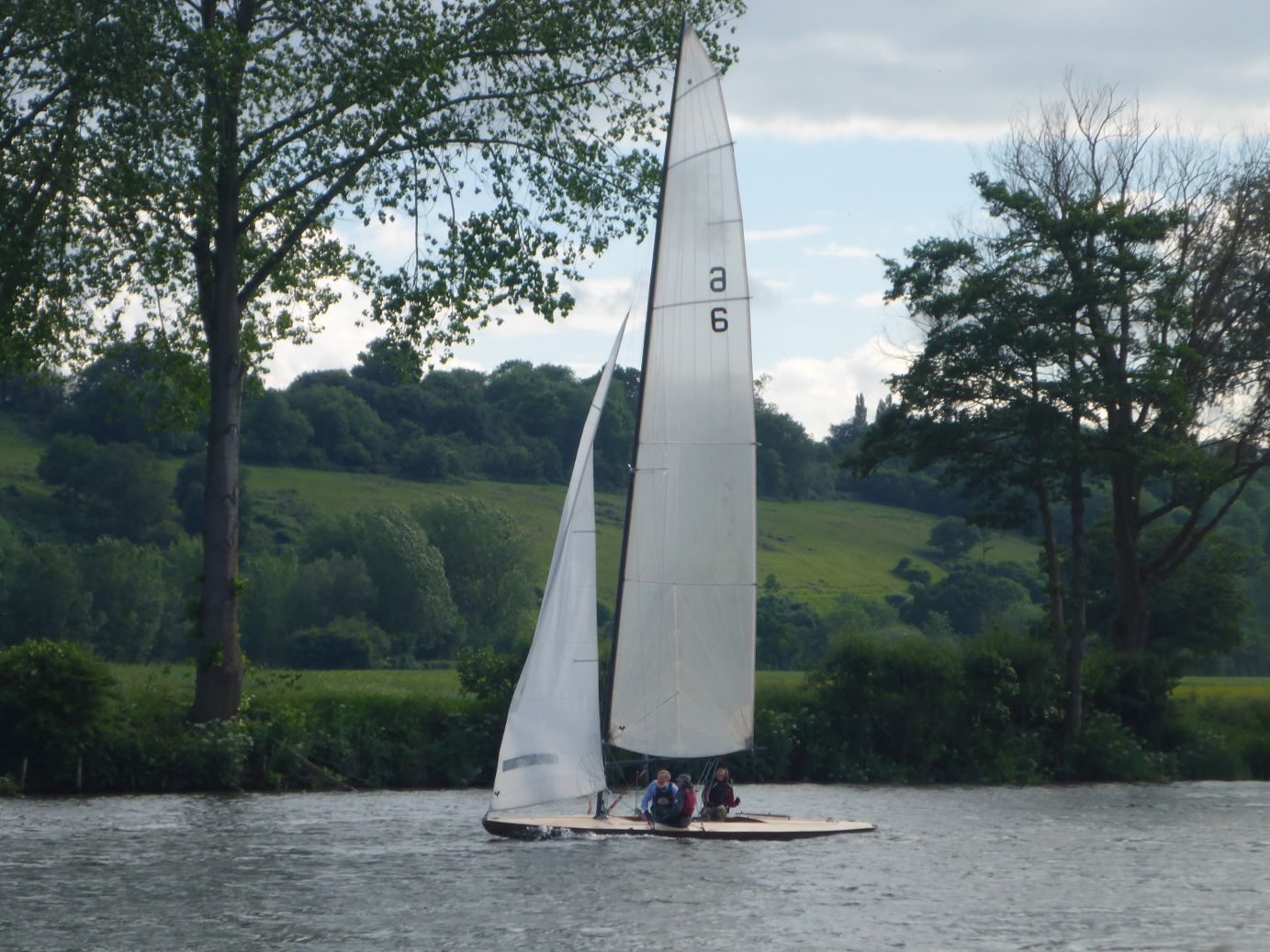Sail Number 6 Built 1902
Originally called Latona, she was designed and built by Burgoine in 1902 for Mr Storey of the Thames Sailing Club. First sailed at Thames S.C. she later
moved to Upper Thames SC. She was deliberately built relatively small so that, according to her sail area, she could
race either as an 'A' Rater or a smaller slower 'B' Rater. Her second owner Sir Arthur Stockdale Cope, a prolific portrait painter, renamed the boat Vanessa. Possibly after Vanessa Bell nee Stephen. Vanessa was one of the first boats to move from the Gunter rig to the Bermuda Rig. The boat changed hands to a Dr Dunn, who spent many years restoring her. The boat was stored in a shed for some 25 years whilst the restoration work was carried out. Sadly he never did see the boat fully restored. Perhaps on saving grace was that the boat was not sheathed in plastic, so unlike a few other Rater like Surf whose wood rotted away under the plastic until there was nearly nothing left. Vanessa is still all wood
Changes in handicapping make if difficult for her to compete against the larger boats, but after recent work she has
been back in the water and sailing fairly regularly, and sometimes showing flashes of real potential.
Currently she is being restored at UTSC and owned by Brian & Sally Reed. When she bought into Vanessa Sally upgraded the mast to a Carbon Fibre one.
Length 7.52m
Beam 2.09 m
Taking Part in Bourne End Week
Working on Restoring Vanessa. At present she is being recalked.
Despite being built in 1902, the hull appears sound, with no major cracks or rot. That alone is impressive — a testament to her original craftsmanship.
However, some issues have crept in over her 120+ years:
Several ribs are damaged — not snapped, but with small sections missing
A few ribs may need to be replaced entirely - or maybe whilst repairing some it is worth replacing all of them.
Floorboard supports are loose or wobbly, which isn’t surprising after years out of the water these will need to be replaced.
The wood has dried significantly, making now an ideal time to repair or replace internal framing
